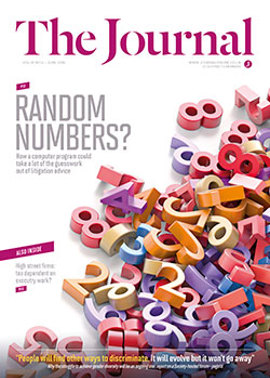Looking forward, looking back: developments in anti-doping

The International Olympic Committee (IOC) recently announced that retesting of 265 samples collected at London 2012 found 23 contained banned substances. Using new analysis techniques, substances have been detected and proceedings commenced in relation to the athletes. Similarly 450 samples collected at Beijing 2008 disclosed 31 “adverse analytical findings”. The fight against doping has, as a result, taken on a new and challenging direction.
Motivated to protect clean athletes and the integrity of competition, the IOC has worked with the World Anti-Doping Agency (WADA) and various international federations to target athletes who could potentially participate in Rio 2016, with the promise that those found to have infringed the rules will be banned from competing. Turkish boxer Adam Kilicci and Russian cyclist Yekaterina Gnidenko were suspended after testing positive for steroids, making them ineligible. While no further information has been published as yet by the IOC, one must assume that the list of prohibited substances being assessed is that in place at the time each sample was given. There would be no basis for retrospectively testing on a different suite of banned substances.
The athlete’s response
Aside from handling the major disruption to training schedules, preparation and selection, not just for athletes but for national Olympic committees, athletes notified of positive tests will be juggling and weighing up the arguments to take. Olympic samples are stored for 10 years. One supposes a science-based challenge, to undermine this integrity, may be difficult to advance; similarly any argument that the IOC had no entitlement to conduct the retesting or thereafter bring proceedings, given the premise of the fight against doping as one of strict liability (WADA Code, article 2.1.1), with a 10-year time limit in which to prosecute any rule violation (article 17), commencing with the date of the alleged violation.
Sanctions under the present regime are up to four years’ suspension, but the question would arise whether the regulatory code should be that in place in 2008 or 2012, when the sanctioning regime had a lower starting point and a different structure.
Supposing the athlete has no basis to challenge the finding (an incredibly difficult task), a plea in mitigation in an attempt to reduce the sanction, for example due to lack of significant fault on the athlete’s part, may be the only approach with any reasonable prospect of success. Typically, such a plea will look at up to four different areas, such as lack of intent (by demonstrating the result was in essence due to the athlete’s negligence), no performance-enhancing effects, failure to obtain a form of exemption for otherwise personal therapeutic or medical use, or ignorance brought on by a lack of awareness and education within the sport. These would, of course, depend largely on the nature of the substance detected, but even more on the evidence brought forward in support of the plea, which would have to meet the comfortable satisfaction of the panel concerned. Therein exists a significant problem for athletes: the task of attempting to reduce a sanction following retrospective testing would be even greater than with an adverse contemporaneous test.
Commercial hit
The spin-off legal issues for athletes could be even more considerable, and give thought for those involved in drafting sponsorship and/or endorsement contracts. The IOC announced recently that in addition to testing certain samples it would focus on past medallists to ensure they were clean; but what if they are not? A gold medal-winning athlete from Beijing may have propelled their career and earnings into the stratosphere following their sporting success, but with anti-embarrassment and good behaviour clauses routinely featuring in endorsement contracts, would a retrospective adverse finding lead to separate civil proceedings for recovery by disgruntled commercial partners? To take the recent example of Maria Sharapova, Nike took immediate and decisive action, suspending their relationship until the proceedings concerning systematic and long-term use of meldonium concluded. Lance Armstrong suffered worse consequences. In both cases, the reaction of the commercial partners to the position that the athlete put themselves into appeared entirely measured and appropriate given the circumstances. One expects that the commercial arrangements allowed the partner to act accordingly.
Sport is so often said to exist in the “here and now”, with an athlete only as good as their last race, or competitive event. With athletes always looking forward and never seeking to rely on past glories, the IOC’s recent moves highlight that there will be little hiding place for past doping failures. In the fight against doping, this can only be appropriate and ethically correct.
In this issue
- Brexit: a brand new world
- Plans reports: an evolving scene
- Law and IT: time for a new blend
- Care proceedings, the EU and foreign nationals
- Reading for pleasure
- Opinion: Simon Di Rollo
- Book reviews
- Profile
- President's column
- Coming down the line
- People on the move
- Litigation value and risk analysis
- Views of the gender gap
- Procurement: the twin track approach
- Wills: beware bank raids
- PSLs: no poor relations
- Sanctions: the holy grail
- DNA: how conclusive?
- Restoration riddle
- Tenant farming: the first guidance
- On a sticky wicket
- Looking forward, looking back: developments in anti-doping
- Scottish Solicitors' Discipline Tribunal
- Additional support needs and age criteria
- Paralegal pointers
- Where law and politics meet
- Marsh: why the axe?
- Law reform roundup
- From the Brussels office
- New framework: watch this space
- Lost horizons?
- Payment frauds: the fight goes on
- Ask Ash
- SYLA: the year in focus
- New wind in the sails






